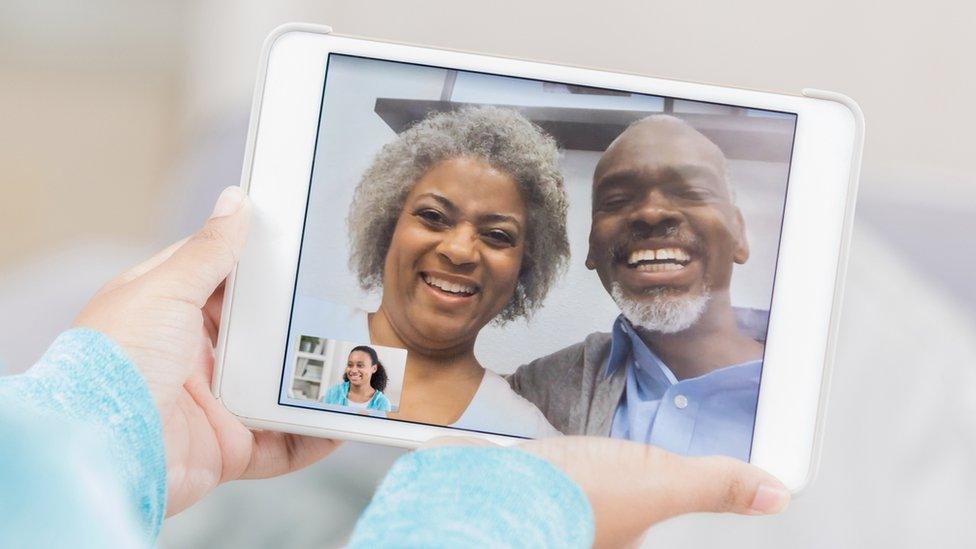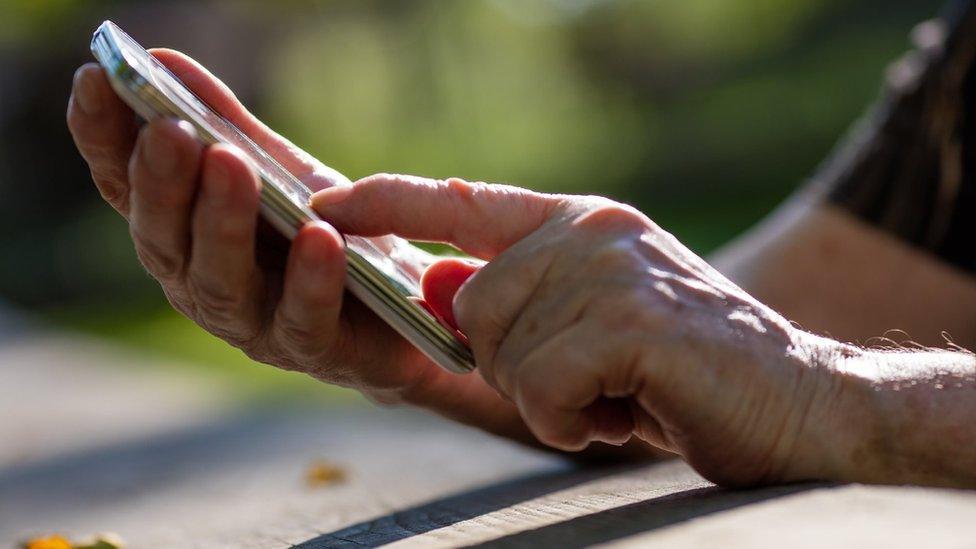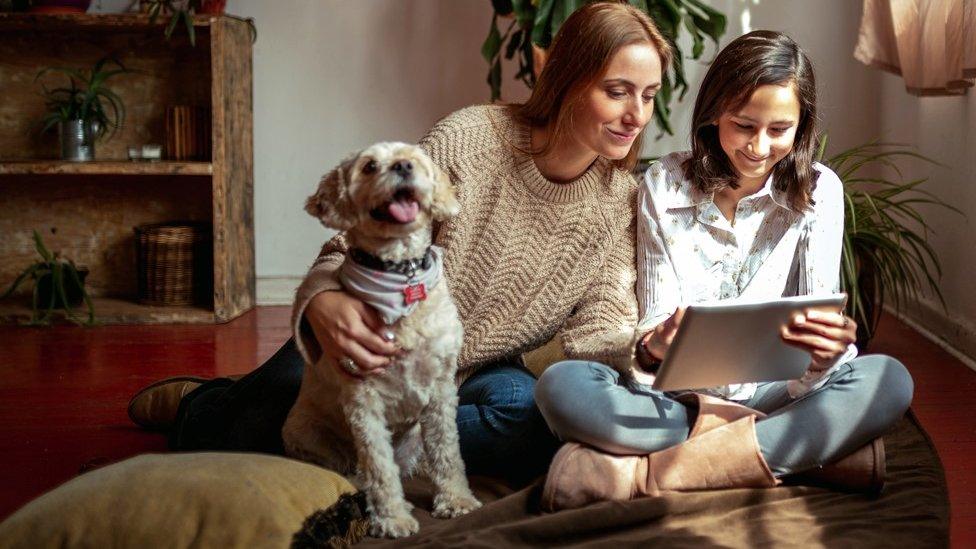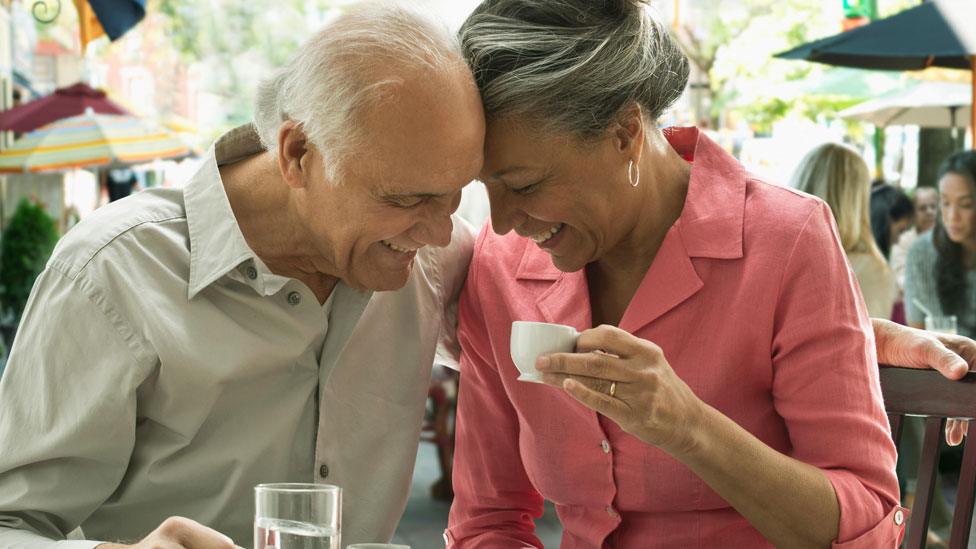Coronavirus: Fears of exclusion from online interactions
- Published

Video calls may be an important way of keeping in touch in coming weeks
From fitness classes to singing lessons, online pubs to yoga, social interaction has gone digital with the coronavirus pandemic.
But a charity has warned thousands of people risk being left isolated and forgotten if they struggle to keep up.
Nearly a fifth of the UK population is estimated to have no access to a smartphone or laptop.
The Campaign to End Loneliness says older people and those with impairments are particularly at risk of isolation.
It fears this "digital divide" will leave many without meaningful or regular interaction as they are forced to limit face-to-face interaction to try and slow the spread of Covid-19.
"The assumption that we've all got smartphone and we've all got laptops is just not true and that can leave behind a lot of older people," said Daniel Pattison from the campaign.
"There's 79% of us using smartphones but that leaves a massive proportion of adults in the UK without access to WhatsApp and Twitter and all those things that younger people rely on to keep in touch."

Some elderly users may have felt pressured to adopt the technology
"This is going to be a really challenging time for a lot of people."
"A lot of us are going to go without face-to-face contact that is really important to us."
Coronavirus has seen a steep rise in the number of social activities being taken online, many for the first time ever.

EASY STEPS: How to keep safe
A SIMPLE GUIDE: What are the symptoms?
CONTAINMENT: What it means to self-isolate
HEALTH MYTHS: The fake advice you should ignore
MAPS AND CHARTS: Visual guide to the outbreak
VIDEO: The 20-second hand wash

A gym in Merthyr Tydfil is one of the latest to point their members towards online sessions as the forced closure of public spaces makes normal business untenable.
Co-owner Leon Felton says he will now look to run daily training sessions online to help see his business through.
"We've got a team of trainers here that are coming up with ideas to keep people active, it is a tough time at the moment, but what we are definitely doing is giving content to people who are self isolating."
'People need to stay connected'
Singing lessons, yoga classes and book shops are also among groups who have taken to using video conferencing to engage with customers and, in many cases, keep their business going.
Some too have turned their love of visiting the local into a digital experience.
David Chriswick from Swansea has formed a digital pub from his living room in his new home in Chicago, USA.
David Chriswick from Swansea has his own online pub from his new home in Chicago
With quiz nights, live music and stand up comedy - all via the medium of video conferencing from the performers home - people have been brought together from across the world, united by a need for social interaction.
"We're seeing some great stories come out of how people are using technology to, in some ways, make up for what is missing," he said.
"People need to stay connected. They need to stay connected in real ways even though, of course, these are very virtual.
"We can actually stay connected in very human ways using technology which is often accused of pulling us apart.
It is a sentiment shared by the Campaign to End Loneliness.
"For a lot of us in the UK we've experienced a week or so now of social isolation and social distancing and I think many of us are now realising quite how hard isolation can be for a lot of people," Mr Pattison said.
"We know that it is affecting people."
- Published20 March 2020

- Published20 March 2020

- Published19 March 2020
